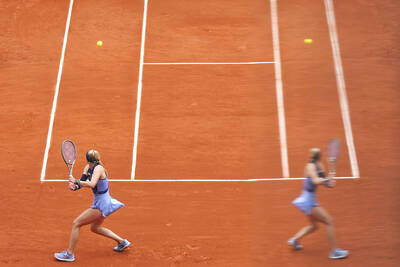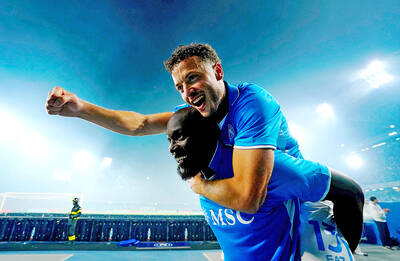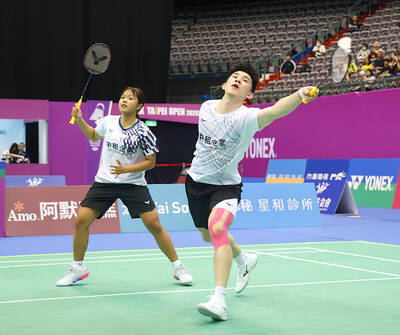In a show of unity after sharp divisions caused by the Russian doping scandal, Olympic leaders on Saturday gave the World Anti-Doping Agency (WADA) increased powers to lead the fight against drug cheats and pushed ahead with plans for a separate independent body to carry out global drug testing.
A summit of top global sports officials backed the agency to continue to oversee worldwide anti-doping efforts, upholding the agency’s central role following months of strained relations caused by its call to ban Russia from the Rio de Janeiro Olympics over state-sponsored cheating.
The leaders called for the agency to lead a “more robust, more efficient, more transparent, and more harmonized” anti-doping system, and promised more funding for the cash-strapped agency if it enacts reforms.
“This is a clear commitment by the entire Olympic movement to an independent and harmonized worldwide fight by a stronger anti-doping agency,” International Olympic Committee (IOC) President Thomas Bach said in a conference call after the four-hour, closed-door meeting at a Lausanne hotel.
The summit also supported previously announced plans for the Court of Arbitration for Sport to take over the role of imposing sanctions on doping cheats, removing the responsibility from sports federations in order to make the system more independent. The court handled doping sanctions during the Rio Games for the first time.
However, the overarching thrust of the meeting was to give support to a reinforced agency, which was set up by the committee in 1999.
The leaders said the agency would hold the “regulatory role” in the worldwide anti-doping fight.
“I’m very happy with it,” agency president Craig Reedie said after the meeting. “We now have a clear set of principles established by the IOC. We are to be given substantial additional authority and substantial additional powers. I am perfectly happy with that.”
The meeting came following a spate of public attacks on the agency by several IOC members, who believed the agency was slow to respond to doping in Russia and then overstepped its remit by pushing for the country’s exclusion from the Rio Games.
The committee rejected the agency’s recommendation — which followed a report by investigator Richard McLaren that detailed systematic doping and cover-ups — and let international sports federations decide which individual Russian athletes could compete in Rio.
A three-page statement issued after the summit made no mention of Russia or the scandal.
However, Bach said that giving the agency “more authority” over national anti-doping agencies could help prevent further cases of noncompliance, citing Russia and Kenya specifically.
The summit also supported the plan, first announced a year ago, for the creation of a new anti-doping testing body “within the framework of WADA,” that would also have intelligence gathering and investigative powers. The intention is to have the body operating in time for the 2018 Winter Olympics in Pyeongchang, South Korea.
“It is quite a complex area,” Reedie said. “There’s questions of who will use it and questions of finance.”
The agency was asked to discuss the proposals at board meetings on Nov. 19-20 in Glasgow, Scotland.
The summit also called for strengthening the agency’s “governance structure,” and approval of a policy to encourage and protect whistle-blowers.
Russian runner Yulia Stepanova and her husband helped expose the widespread doping in their homeland, and are living in exile in the US. The committee rejected Stepanova’s bid to run as an independent athlete in Rio.
Still to be determined is who has the power to sanction countries for noncompliance with the agency’s rules, an issue brought to light by the Russian crisis.
Bach said the issue was not discussed in detail at the summit, because governments also need to be involved, again citing Russia.
“The general rule is that you do not want to see the prosecutor also being the judge,” Bach said, indicating that the agency should not be handling both roles.
Reedie said he believed the agency would have the power to sanction federations and national anti-doping bodies.
“I hope so,” he said. “We have been given powers on compliance. We are going to produce a whole range of potential sanctions for different degrees of noncompliance. That is in our hands and we will do that.”
“If we are granted these powers ... I can assure you they will be used properly and well,” he added.
Bach reiterated that the IOC has two commissions looking into the Russian case, including one dealing with possible sanctions resulting from alleged manipulation of Russian doping samples during the 2014 Winter Games in Sochi.
Bach said the committee would not rely on McLaren’s report on its own, saying the Canadian had not given the Russians the chance to respond.
“You have to give a fair hearing to everybody,” Bach said.

Carlos Alcaraz on Monday powered into the French Open second round with a resounding win to start his title defense, while world No. 1 Jannik Sinner and three-time defending women’s champion Iga Swiatek also progressed at Roland Garros. Four-time Grand Slam champion Alcaraz struck 31 winners in a 6-3, 6-4, 6-2 victory over Italian qualifier Giulio Zeppieri and is to face Hungary’s Fabian Marozsan in round two. Alcaraz is now on an eight-match winning streak at the French Open and also took Olympic silver at Roland Garros last year, losing the final to Novak Djokovic. “The first round is never

TIGHT FINISH: Napoli only needed to do the same as or better than Inter, who won their game against Como 2-0 on the same day, leaving Napoli with a one-point lead The two players who Antonio Conte wanted more than any others secured Napoli their second Serie A title in three years on Friday. Scott McTominay scored with an acrobatic bicycle kick before halftime and Romelu Lukaku doubled the lead with a solo goal after the break in the decisive 2-0 home win over Cagliari. Conte became the first coach to win the Italian championship with three different teams. “Everyone contributed to this — but the coach most of all,” Napoli captain Giovanni Di Lorenzo said. “Napoli needed him to get back on top. He’s phenomenal.” Comparing it to his three Serie A titles won

The journey of Taiwan’s badminton mixed doubles duo Ye Hong-wei and Nicole Chan at the Malaysia Masters in Kuala Lumpur came to an end in the semi-finals yesterday after they suffered a 2-0 loss to China’s Feng Yanzhe and Huang Dongping. Ye, 25, and Chan, 20, teamed up last year and are currently ranked No. 23 in the world. The Taiwanese shuttlers took on China’s second seeds in the mixed doubles event, but proved no match for Feng and Huang, losing the match 10-21, 7-21. In the first half of the first game, the pairings were neck and neck at 6-7 until Ye

SSC Napoli coach Antonio Conte has dragged the team back from disaster and restored them to the top of Italian Serie A, but his future at the Scudetto winners is in doubt even after a triumphant season. The fiery 55-year-old has exceeded preseason expectations and bolstered his reputation as a serial winner by guiding Napoli to their fourth Scudetto, and second in three seasons. However, he might well be on his way in the summer after just one season at the helm as his charged relationship with Napoli owner Aurelio De Laurentiis has simmered throughout the campaign. Conte has said